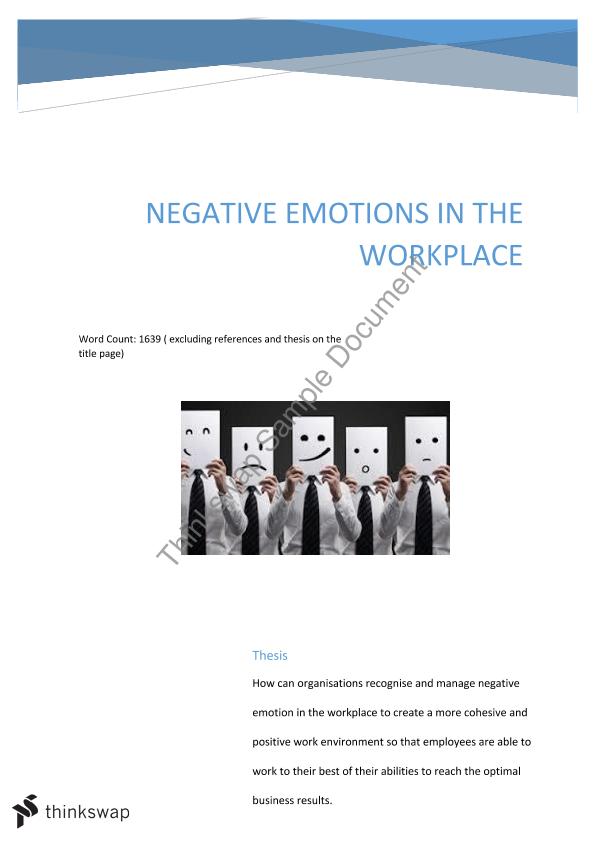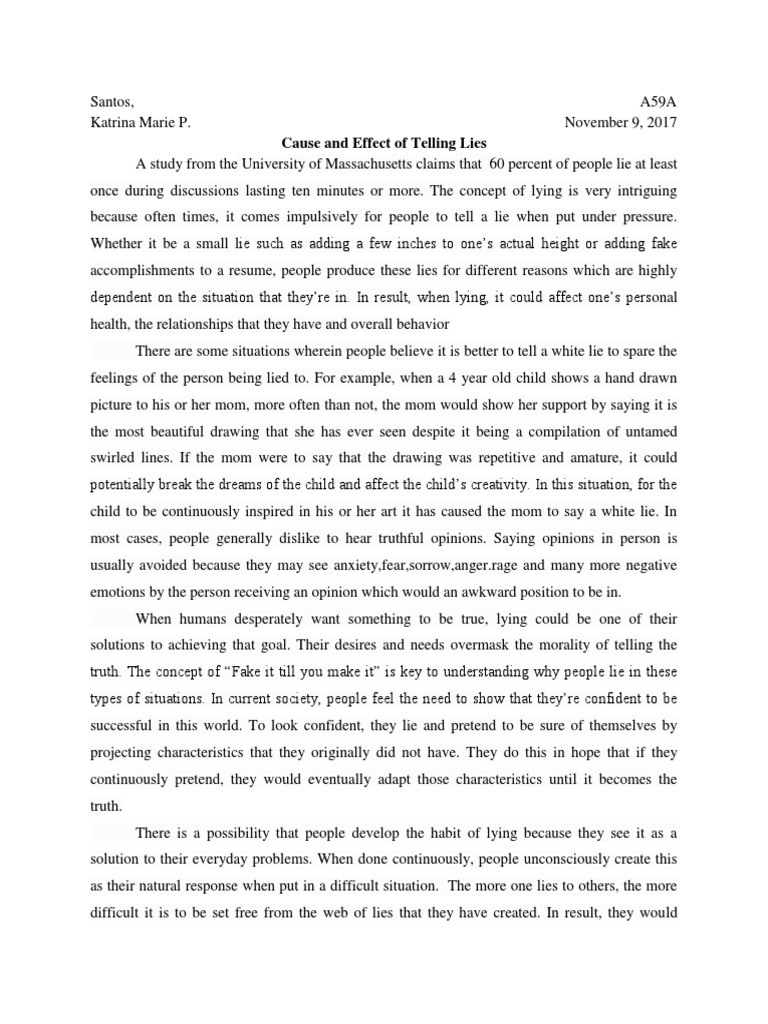26/06/ · Organizational behaviour studies the actions of people in an organization in relation to achievement of goals. Self appraisal, as discussed in this write up is beneficial to a 1/01/ · Organizational behavior is a field concerned with study of the relationship between the organization and the individuals in the workforce. In particular it entails studying how the 9/07/ · Organisational behaviour is one of the most complex and dynamic fields of study. This is because of the different avenues of study. The other reason is the availability of many
Organisational Behaviour Argumentative Essay - blogger.com
Read this essay to learn about Organisational Behaviour. After reading this essay you will learn about:- 1, organisational behaviour essay. Introduction to Organisational Behaviour 2. Behavioural Science 3. Group Dynamics 4. Human Behaviours 5. Individual Behaviour 6. Group Behaviour, organisational behaviour essay. Organisational behaviour is concerned with the understanding, prediction and control of human behaviour in organisations. It focuses on the individuals, the groups, and the organisation and also on their interactional relationships. Organisational behaviour attempts to understand individuals in an organisation as a basis of meeting individual needs and achieving organisational objectives.
Organisational behaviour relies upon scientific methods to build, evaluate and modify theories about behaviour in organisations. iii Using the results of observations to explain relationships among objects, organisational behaviour essay, events or persons in the real world. Raman J. Organisational behaviour can also be defined as the study and application of knowledge about how people act within organisations. Organisational behaviour is of integrating nature organisational behaviour essay tries to synthesize knowledge drawn from various behavioural and social sciences organisational behaviour essay as:.
It covers attitude analysis, personality analysis, organisation theory, senses and sensation, protective techniques, learning theory, organisational behaviour essay, morale analysis, perception and rationality. It includes interpersonal relations, morale, class behavioural patterns, role and status, innovation and change, organisational behaviour essay, organisation theory, group behaviour, environmental influences, public opinion, formal organisation, social change, group surveys, social values and social institutions. Each of these behavioural sciences has a distinct focus of the study of human behaviour. Psychology is concerned with the analysis of individual behaviour.
Sociology deals with the study of society, institutions, the organisation, the group, and norms and roles. The integrated knowledge of diverse behavioural sciences has the following applications:. Understanding of organisational behaviour essay and others. This can be studied as the individual level, inter- personnel level, group level and inter group levels. Behavioural Science is a science that studies the behaviour organisational behaviour essay men and their physical and social environment, by methods of experiments and observations in the manner of other natural sciences.
Behavioural science includes psychology, organisational behaviour essay, sociology, social anthropology etc. Management, thus defined, organisational behaviour essay, applies to all types of organisations, whether they may be business, industries, hospitals or educational institutes. b Adapting — being able to adopt your behaviour and other resources available with you, and. c Communicating — being able to communicate in a way the people can easily understand and accept. Behavioural Science integrates concepts and theories and the results of the empirical studies from the areas of cultural anthropology, economics, political science, psychology, sociology and social psychology.
A behavioural scientist attempts to integrate all of those areas or disciplines which are useful in better understanding, predicting and having an impact on the behaviours of individuals and groups. The specific goal may or may not be conscious but known by the individual. To predict behaviour, manager must know which motives or needs of people evoke a certain action at a particular time. Motives are the needs, wants, drives or emulses within the individuals. These are directed towards goals, which may be conscious or subconscious as mentioned earlier. Psychologist calls these goals as incentives. As motives or needs are the reasons underlying behaviour of a person, and all individuals have many needs, hence all these needs comprises for the behaviour.
The blocking or delay in achievement of organisational behaviour essay attainment leads to frustration. A person may also get frustrated by an imaginary barrier. In the figure, motives of an individual are directed towards goal attainment. The strongest motive produces behaviour that is either goal-directed or goal activities. Since not all goals are attainable, individuals do not always reach goal activity. The sum of these habit patterns as perceived by others, determine their personality. Organisational behaviour essay individuals begin to behave in a similar fashion under similar situations, this behaviour is what others learn to recognise by them as their personality.
They expect and can even predict certain kinds of behaviour these people. In reality, in order to accomplish our aspirations, we work in and with groups. As a leader, manager must deal with individuals differently than those with a group. Organisational behaviour essay are certain complicated factors when a manager is working with groups. Group develops personalities — customs, traditions etc. that tends to differentiate them from other groups and are characteristic of that group. Groups have modes, or patterns of behaviour as perceived by others. Therefore the term group dynamics refers to the forces operating in groups.
The study of this subject is necessary to investigate these forces and conditions modifying them. In order to fulfill their social needs, people form small group on the job itself. They behave as members of the organisational behaviour essay and their membership in group help to shape their work behaviour and attitude towards the organisation and the job. There is a significant change in the behaviour of a person who was acting as an individual when allowed to act as a member of some group. Groups generally exercise stronger control over their members than the management.
Group dynamics is a social process by which people interact face to face in small groups. Group dynamics focuses a team work, wherein the small member groups are constantly in touch with each other and effectively contribute their ideas to accomplish a task. The group develops its goal clearly. Every member participates in discussions. The group has a common objective. The group creates leaders who can coordinate group efforts effectively towards the achievement of their objectives. A group is formed on the basis of attraction of persons towards each other as they have similar attitudes towards common objects or goals.
Common attitudes and values may be politics, religion, organisational behaviour essay, literature, language, organisational behaviour essay, work, aesthetics, traditions, authority, marriage etc. As we know that, a group is defined as two or more people who interact with and influence each other toward a common purpose. These are the groups created for carrying out certain tasks to help the organisation achieve its goals. A group composed of a manager and its employees that report to that manager is a most common type of formal group, and is known as command group. Other formal groups may be committees, task forces, project teams etc. created to deal with a particular problem. These are the groups formed within organisational behaviour essay formal organisation structures, formed by coming people together and interacting regularly e.
Cohesiveness of any group depends upon status, size, location and nature of group. For meeting strategic, goals cooperation become more vital, for which cohesiveness needs to be strengthened by introducing competition, increasing interpersonal attraction, increase interaction, and create common goals and fates. Performance of an individual is affected by his own characteristics, like brain, organisational behaviour essay, qualifications, abilities, motivation, nature etc. The differences in individuals can be classified in organisational behaviour essay two categories:. An organisation has formal and informal groups. Formal groups are formed from function requirement, organisational behaviour essay, while informal groups are formed by employees themself due to their social and security needs, common interests and other psychological factors.
An employee behaves differently in a group, organisational behaviour essay. Group influences organisational behaviour essay attitude and behaviour of an individual. Each group has its own cultural pattern, and individual for stay in this group must conform to this culture, organisational behaviour essay, if he has to remain in the group. Group behaviour may beneficial as well as detrimental for the organisation and management depending upon the attitude of the group. Generally chances are for detrimental in nature. The individuals behave differently depending upon their motivation, learning, values and perception they have.
The behaviour of an individual is influenced by various factors, organisational behaviour essay. Some of the factors are related to himself e. while some others are related outside him comprising the external environment of which he is a part, organisational behaviour essay. The individual behaviour is not a self-induced phenomenon, but is affected by a larger system e. Perception is the viewpoint by which one interprets a situation. Visual perception or seeing, which plays an important role in our daily life is very complex phenomenon. People differ in the ways they perceive the things surrounding them. What we see is dependent upon the way the brain organises the nervous impules which come from the eye. Our perception is usually dependent upon the frame or background or the context in which we see things.
Size of the visual also assumes the importance in perception. The perception can be improved by learning and training only up to some extent. Perception includes all those processes by which an individual receives information about his environment seeing, hearing, feeling, testing and smellingselect, organise and interpret them. Through perception, people process information input into decisions and actions. Since people working in an organisation differ in terms of physical characteristics such as age, sex etc. People differ in their reaction due to differences in perception they have about things.
Perception is a way of forming impressions about oneself, other people and daily life experiences.
Introduction to Organizational Behaviour
, time: 33:56Organisation and Behaviour - Words | Essay Example

1/01/ · Organizational behavior is a field concerned with study of the relationship between the organization and the individuals in the workforce. In particular it entails studying how the 9/07/ · Organisational behaviour is one of the most complex and dynamic fields of study. This is because of the different avenues of study. The other reason is the availability of many Organisational behaviour is a study of the way people interact with one another within a group. The study is applied in order to attempt at making business organisations more efficient. This

No comments:
Post a Comment